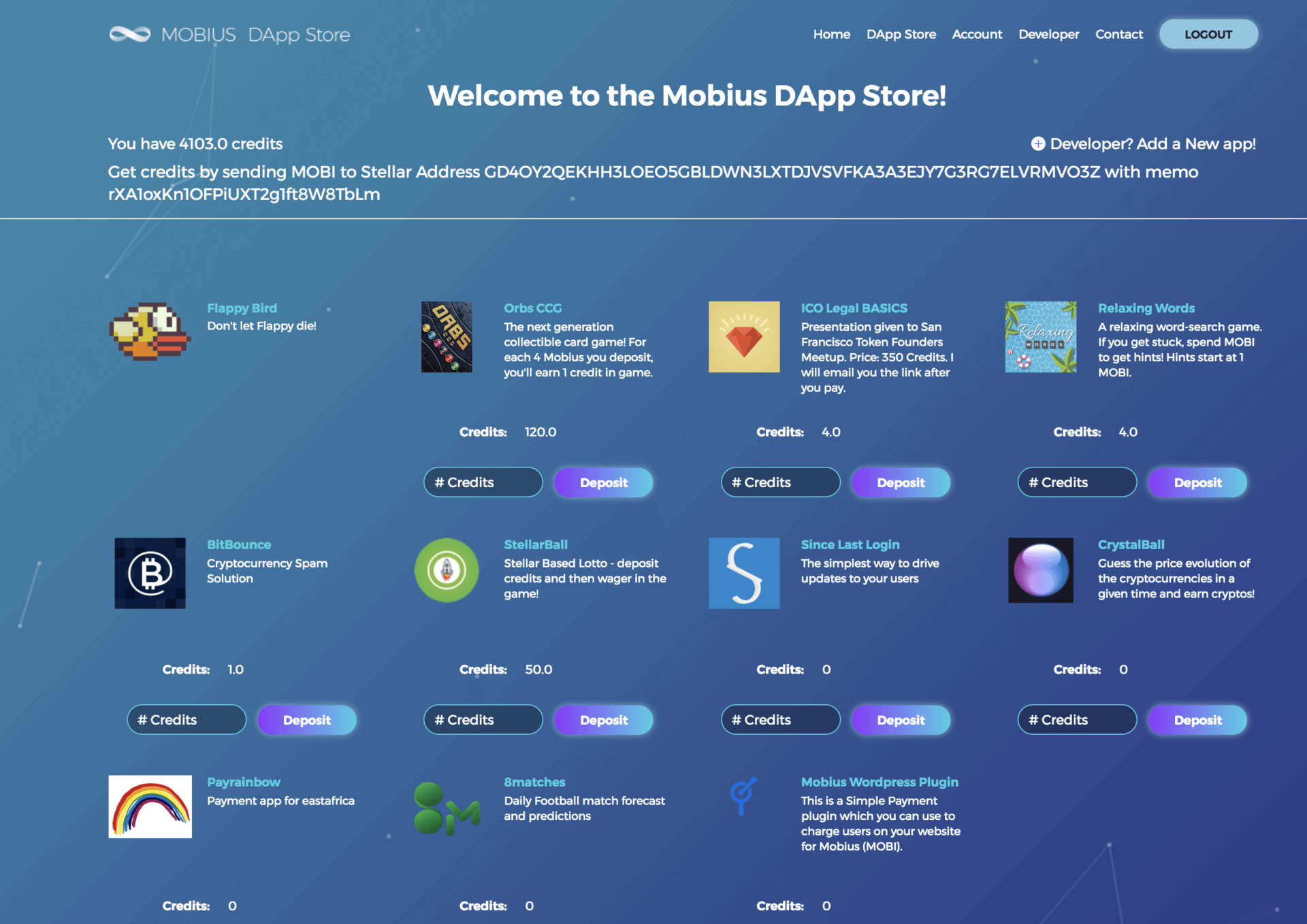Startup Mobius Network launches ‘Stripe-like’ API for blockchain access
Through Mobius’s new API and application store, marketers can readily gain access to blockchain-based transparency and reward tokens.

As blockchain technology settles into becoming the backbone of a new software ecosystem, startups are beginning to work out ways of tying the new frontier to the old world.
One such startup, San Francisco-based Mobius Network, has recently launched a universal API that connects any application, website, web application, device or data source to a blockchain.
The offering is one of the first that can give marketers’ sites or applications ready access to blockchain-based tokens for customer rewards, and to blockchain-recorded transactional transparency.
CEO and co-founder David Gobaud told me he undertook this startup because, when he was developing a game, he envisioned utilizing blockchain-based tokens. But, he said, it required setting up “a massive infrastructure, [and] we get rid of that.”
An application can accept Mobius’ Mobi tokens by registering the app in the Mobius Network’s new DApp store. Mobis can be exchanged for other tokens or conventional currency on crypto-currency exchanges, or can become credits inside the application.
To connect an application, a developer signs up in DApp and, a few clicks later, the application can accept Mobis through the store. If the developer wants to set up, say, a standard checkout with shopping cart to accept any Ethereum- or Stellar-based token, including Mobis, the API can be employed.
Via the API, a developer can make an HTTP call to Mobius’ Stellar blockchain instance, not unlike the way Stripe lets retail applications enable payments directly in their online stores.
Gobaud says his company is the “first one with a Stripe-like approach” that enables access to the complex infrastructure of blockchain tokens and recording with a function call.
Eventually, Mobius says it will have API fees “like Stripe,” but for the moment, use of the API and the store is free.
Ethereum is a popular open-source blockchain platform, and Stellar is a more recent, payments-oriented blockchain competitor. Gobaud says Stellar is “faster, cheaper and more secure” than Ethereum.
Stellar can handle more than a thousand transactions per second, compared to seven transactions per second for Ethereum, he said. Additionally, Mobius says Stellar’s fee for each transaction is $0.0000025, while Ethereum’s is over $0.30.
Contributing authors are invited to create content for MarTech and are chosen for their expertise and contribution to the martech community. Our contributors work under the oversight of the editorial staff and contributions are checked for quality and relevance to our readers. MarTech is owned by Semrush. Contributor was not asked to make any direct or indirect mentions of Semrush. The opinions they express are their own.
Related stories
New on MarTech
